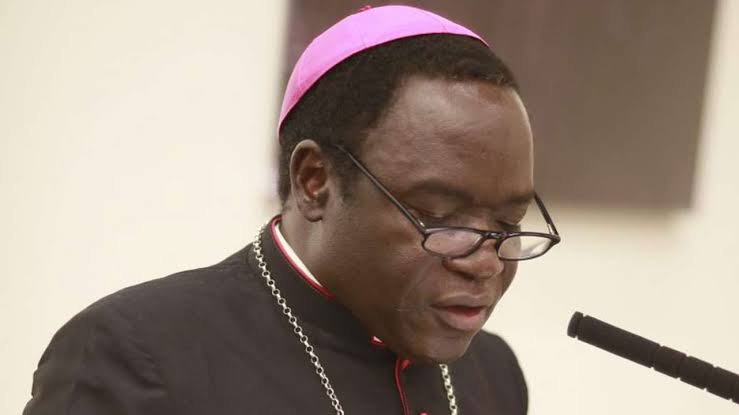By Farooq Kperogi
Why does it seem like the Buhari regime is propelled by a knee-jerk, irresistible impulse to respond to everything Bishop Matthew Hassan Kukah says?
Everyone in Nigeria—and even the world—could be saying that Buhari is inept and obstinately wedded to narrow loyalties, and the presidency would be quiet. But let Bishop Kukah say the exact same thing. Boom! Presidential missiles would start flying.
There seems to be a standing order, perhaps even an article of faith, in the Buhari presidency that Bishop Kukah must never be left unanswered.
Even a cough from him that remotely mimics the sound that Buhari’s name makes must be responded to with the pettiest, most sullen, and least sensible comeback.
What animates this level of unprecedentedly petty presidential obsession with one personality? I honestly can’t quite get a handle on it.
This is particularly puzzling for me because I know for a fact that Bishop Kukah is personally known to all the people who habitually affront him for merely ventilating uncomfortable thoughts about the Buhari regime.
In fact, in private encounters, these people profess their deep admiration for the Bishop’s intellect, affability, and brutal frankness.
Whatever you may say about Bishop Kukah, you can’t help but admit that he is far and away one of the—if not the—most ecumenical religious figure(s) of the last few decades in Nigeria. (I mean ecumenical in inter-faith terms).
More than any religious figure I know, he goes out of his way to cultivate the friendship of people from all strata of the society. And his friendship is genuine and heartfelt.
Yet he never leaves anyone in doubt where he stands on any issue even if that makes you disagree with him vigorously. He won’t say behind you what he can’t tell you to your face. That’s what everyone who knows him says about him.
If the presidency’s impetuous responses to Bishop Kukah’s interventions and homilies are intended to undercut them, they actually do the opposite.
The presidency has more symbolic power than he does. By responding to him, and as unfairly as they often do, the presidency helps to broadcast and lend additional weight to his messages to wider layers of the society.
And because most of what he says resonates with vast swaths of people across different subpopulations of the Nigerian society, he wins all the time. In other words, the presidency scores own goals each time it needlessly tackles him.






